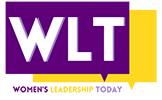
by Nancy Schnoebelen Imbs
published in Executive Support Magazine
November 25, 2021

Nancy Schnoebelen Imbs shares her top tips and techniques to master the process and art of negotiating
For many people, negotiating does not come easy. It’s fraught with fears – fears of failure, fears of appearing aggressive, fears of appearing ungrateful in your job, fears of not having the knowhow to “win.” Whatever the angst, by passing up opportunities to negotiate matters that are important to you, such as a salary or wage increase, work resources, professional development, or work-life balance, you are doing a huge disservice to yourself and your career.
“The capability of negotiating…is something that means you not only have to understand fully what you believe and what your national interests are but in order to be a really good negotiator, you have to try to figure out what the other person on the other side of the table has in mind.”
Madeleine Albright
Years ago, while working at a financial institution, we trained our financial representatives to “ask for the order.” In other words, when financial advisors met with their clients, not only were they well prepared to share appropriate investments to help clients meet their long-term financial goals, but they also never left the meeting without “asking for the order.”
Don’t be afraid to ask for what you want – to ask for the order. By being assertive, you are using your voice and working to get your needs met. Negotiating is a process, one that may involve give and take for the win-win. Negotiating is also an art, one that involves skill and aplomb. Most importantly, negotiation is all about relationships. When you cultivate and maintain a good rapport with those at the negotiating table, you’ll create an agreement, one that continues to bind the relationship and bring satisfaction to both sides.
Here are five proven tips and techniques to help you master the process and art of negotiating. In so doing, you will develop your credibility and open doors for greater career success in the future.
1. Be Prepared
Benjamin Franklin once said, “By failing to prepare, you are preparing to fail.” He couldn’t be more correct. Preparation is key to success, especially when negotiating. For example, you wish to speak to your executive to ask them for permission to attend three professional development conferences a year, over the one conference you currently are allowed to attend annually. One of the three conferences will require travel and overnight stays at a hotel.
In your “ask,” you will share how the conference will assist in your professional growth. In turn, you will ensure any work due will be completed before attending the conferences, and you will also arrange for a coworker to offer any assistance your executive may need in your absence. You will share with your executive the three conferences you’d like to attend, including the costs, a year in advance with specific skills you’re looking to develop. These skills will help increase office productivity and effectiveness. You’ll also have examples and numbers on hand related to other Assistants who attend similar conferences to better their skills. By preparing your case to attend more conferences, you will be ready for questions from your executive and feel empowered with a boost of confidence to “win” your request.
2. Have a Plan B
Sometimes, no matter how much you prepared, your “wish” may not be granted. That is why it’s essential to have a Plan B. Hypothetically, let’s look at this scenario. You have scheduled a meeting to ask your executive for a seven percent salary increase. They are aware of the reason for the meeting. You’ve done your homework, you’re confident, and you’re ready to go. The meeting gets underway with a few minutes of small talk and then you begin your ask. There is back and forth dialog, and your executive declines your request but offers a four percent increase. There is more back and forth, and still, they do not budge.
This is where you employ your Plan B. You let them know you respect their decision, but since they couldn’t meet your full increase, would they consider allowing you to work from home two days a week to help defray office travel costs? When you have a Plan B, you are likely to feel valued and content. Conversely, the person you’re negotiating with will be more apt to accept your Plan B as a win-win for both parties.
3. Use Your Active Listening Skills
We can all improve our listening skills, and when entering a negotiation, paying close attention to what is said is a critically important part of the process. When you are an active listener, you make a conscious effort to be in the present. You maintain good eye contact and always remain focused.
As an active listener, you also consider not only the words that are spoken but the complete message, which includes their body language. You can get a lot of cues from a person’s nonverbal communication. If, for example, the other person is checking their watch frequently, they are likely “saying” they have another appointment fast approaching. As a good listener, you can use this knowledge to get right to the point or ask if they would rather reschedule the meeting. On the other hand, if they’re smiling and exhibiting other happy emotions, mirror them, and remain confident and controlled.
When you employ active listening, you are also skilled at asking open-ended questions to gather more information for leverage. Open-ended questions cannot be answered with a simple no or yes. They require the respondent to provide additional background, which allows for more actionable answers and will help you better navigate to solutions.
4. Keep Your Emotions in Check
Maintaining your emotions in a negotiation is imperative to success. Losing your cool or having an automatic reaction are not the type of self-regulation skills you want to possess. Rather, controlling your emotions from start to finish must be part of your end goal. Speaking and expressing your needs in a calm, controlled manner will help you achieve your request.
In addition, choose a time to negotiate when you and the other party are not under a lot of stress. It’s likely, too, you will know the triggers of the person with whom you are negotiating. A good negotiator does not allow their emotions to get the best of them. Wear your “self-awareness” hat to ensure you are aware of their emotions and how they will impact you as well as how your emotions will impact them.
5. Maintain Respect – Always
It’s natural to feel disappointed or show frustration when things don’t go your way in negotiation. It’s easy to take it personally as well. Remember, respect is always the name of the negotiation game.
You worked hard to develop your professional brand, and you don’t want to tarnish it by showing disrespect. It can take a long time to gain back trust and respect. Often, your executive will see the reasoning behind your request and will feel badly, too, because they couldn’t fulfill your objective. If you’ve established a good working relationship, chances are your executive will work with you to find a happy medium. Taking the high road will be the favorable route — always.










































































































